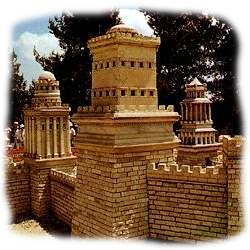
CHURCH OF THE BRETHREN NETWORK
Continuing the work of Jesus : Peacefully ~ Simply ~ Together
UNOFFICIAL WEBSITE OF THE CHURCH OF THE BRETHREN

 |
CHURCH OF THE BRETHREN NETWORK Continuing the work of Jesus : Peacefully ~ Simply ~ Together UNOFFICIAL WEBSITE OF THE CHURCH OF THE BRETHREN |
 |
Written by Frank Ramirez ~ Published October 29, 2001 ~ Last Updated, October, 2001 ©
This document may be reproduced for non-profit or educational purposes only, with the
provisions that the entire document remain intact and full acknowledgement be given to the Author.
I’ve been a city boy much of my life, so what I see in the country still amazes and amuses me, even after a decade living in rural Indiana. This autumn I've been particularly amused by a raccoon who lives down the road from me. He’s a bit of a genius, and has learned to climb up telephone poles in order to get a better look. There’s no food up telephone poles as far as I can tell, but this raccoon regularly climbs up and I want to believe it’s for better perspective.
If there’s anything we need in the wake of the events of September 11, 2001, it’s perspective, and that goes for those of us inside as well as outside the peace churches.
One problem is that we get caught up in current events. For once the news is worth following religiously, but there's a danger of it becoming a separate and idolatrous religion.

In Luke 13:1-9 Jesus and his listeners get to talking about current events. Some people bring up the topic of rebellious Galileans (whether they were freedom fighters or terrorists depended on your perspective) who were murdered by Pilate. Jesus responds that their fate was no different than those who died when the Tower of Siloam fell. (The scripture came to mind September 11 because of the obvious connection with falling towers). According to Jesus the crucial fact was whether the individuals in question had repented in a timely fashion. His parable of the fig tree was a reminder for all of us that first and last things have priority over even the most compelling events of the present. It comes down to this. If a thing was right before September 11, it is still right, and if a thing was wrong, it is still wrong.
However, I think that some who are members of the historic peace churches must not put the cart before the horse. We are Christians first. Christianity is not a convenient means of explaining or proving the cause of peace. Peace is the natural lifestyle of a committed follower of Jesus Christ, one who recognizes that the life, death, and resurrection of Jesus are real and saving events that change lives now.
The apostle Paul speaks of righteousness, which is properly defined not as a standard of outward morality, but the state of seeking to live in God’s peace, a shalom which was intended to include all nations, all individuals, all of creation in a perfect reflection of God’s will for our lives. This peace is not strident or self-justifying. It is not achieved by isolation from the world. It does not put itself on a pedestal to condemn others.
As a matter of fact, it is not arrogant or rude. It is not jealous or boastful. It does not rejoice in the wrong but rejoices in the right. It bears all things, believes all things, hopes all things, endures all things. It’s a lot like love in this regard.
In a recent editorial in the Wall Street Journal Scott Simon, the host of NPR’s Weekend Edition and a member of the Society of Friends, one of the three historic peace churches, made the important observation that just as some generals get caught unaware because they are still trying to fight the last war instead of the current one, so too peace advocates can find themselves protesting the last war, not the present conflict. This is a not a war of American aggression or imperialism. This is not about oil. This is not about preserving or propping up unjust governments.
If the peace movement fails to recognize that a terrible and unjustified harm was perpetrated on Americans, then we shall in the end damage, hopefully not permanently, our domestic peace movement.
It will also be important for the peace community to make a clear distinction between explanation versus justification. One can explain how terrorists are harvested, for instance, by pointing to American support of repressive Middle Eastern governments, such as that of Saudi Arabia, where no moderate political dissent is allowed. One can point to poverty as the root causes of many of the difficult world situations. One can recall world history and current political situations which have bred a poisonous atmosphere is various parts of the globe and perhaps demonstrate ways in which the United States is as guilty as other developed nations in creating or preserving inequities.
However, none of this justifies hijacking airplanes and crashing them into buildings, causing the deaths of thousands. Peace advocates who insist that the actual event is somehow the fault of this nation are engaged in nearly as grotesque twisting of logic as the terrorists.
Those of us who are advocating for peace need to recognize that there is not only a human need for justice with regards to the crimes which have been committed, but also a biblical or divine need for that same justice. Anyone who reads scripture from beginning to end (and not all peace advocates are as familiar with the Bible as they should be) recognizes that justice, the balancing of all scales to achieve God’s righteousness on the earth in the form of Shalom, is a constant thread that runs through the Biblical tapestry. From God’s Law, through the claiming of the land, the struggles with Judges, Prophets, and Kings, through the writings of the Psalmist, there is the recognition that God’s justice is an objective standard, and that we are all called to live that justice. In the New Testament Jesus proclaims scriptures of justice, and the vision of Revelation is a strong reminder that ultimately, God's will shall be done.
The attacks of September 11 require justice. The perpetrators must face human courts and will face divine courts. Despite initial calls for a crusade of infinite justice, the tide of world and American opinion has insisted that the present desire of nations is that the perpetrators should be caught and punished. The peace movement must play a strong role in continuing to discern between justice and vengeance, and insist that racial stereotypes and popular prejudices not be allowed to have their day. Brethren and Mennonites have historically recognized the place of civil authority in the form of police to maintain order in the divine scheme of things. To the extent that armed authority on the world or national stage is aimed directly at the perpetrators of crimes against the United States or humanity, Brethren and Mennonites may feel it is legitimate to support such actions.
Finally, if we want those who disagree with us to respect our position, we must extend the same courtesy. In my congregation there are those with relatives who have made a deliberate and informed choice to serve what they see as the cause of justice through service in the armed forces. We are called to pray for their safety and the safety of people around the globe, and to pray for God's blessings on all.
About the Author
 |
Frank Ramirez is pastor of the Everett Church of the Brethren in Everett, Pennsylvania, and a prolific Brethren author whose articles frequently appear in denominational literature. He is the author of the recently published ?The Love Feast,? a compilation of history, theology, and personal insights surrounding the Brethren communion service. Ramirez was also evening worship speaker at the 2001 Annual Conference of the Church of the Brethren in Baltimore, Maryland. Please see other articles by Ramirez: Creeds and the COB, Tracing the Source of Q |